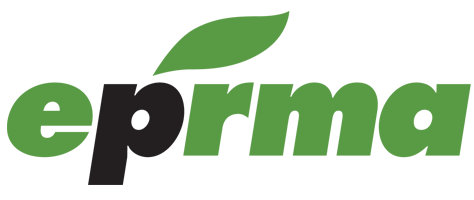Personal Hygiene for Restaurant Employees
Key Hygiene Practices for Food Safety
Hand Washing
Hand washing is one of the easiest, most effective ways to demonstrate good hygiene. Hands (and exposed portions of arms) must be washed and dried:
- after touching bare human body parts, including face, other than clean hands and clean exposed portions of the arm
- after restroom use
- after touching money or handling anything dirty or unsanitary
- after touching or combing hair
- after caring for or handling animals
- After coughing, sneezing, using a handkerchief or disposable tissue
- after using tobacco, eating or drinking
- Immediately before starting work with food or food preparation including working with exposed food, clean equipment and utensils
- During food preparation, as often as necessary to remove soil, contamination and to prevent cross between or when changing tasks
- if work is interrupted and before and after taking a break.
Food employees must clean their hands in a hand-washing sink that is equipped with hot and cold running water. Employees must not clean their hands in a sink used for food preparation, or in a service sink or a curbed cleaning facility used for the disposal of mop water and similar liquid waste.
For hand washing to be effective, washing must include the backs of the hands, palms, exposed arms, between fingers and under fingernails. Hands should be rubbed vigorously with soap for a minimum of 20 seconds, then rinsed and dried with a clean paper towel.
Hair Restraints
- Employees who prepare food should wear hair coverings such as hairnets, hats or scarves. Bearded employees should wear beard nets.
- Employees such as counter staff, hostesses, wait staff and bartenders may not be required to wear hair restraints if they present a minimal risk of contaminating food and equipment. At all times employees should have clean and well-groomed hair. Hair should be pulled back off the shoulder. Facial hair should be neat and well-trimmed.
Fingernails and Jewelry
When preparing food, employees should:
- Keep their fingernails trimmed so they are easy to clean.
- Wear gloves when working with food if wearing fingernail polish or artificial nails.
- Do not wear jewelry on the arms and hands. This does not apply to a plain ring such as a wedding band
Clothing
Employees should wear clean outer garments when preparing or serving food products or washing and sanitizing equipment and utensils. Shoes must be close toed, with a slip resistant sole. Socks must be worn. Personal belongings should be stored away from food handling, preparation and storage areas. If employees routinely change clothing at the establishment, a room should be provided for this use. Changing areas should be separate from food preparation and storage areas.
Eating and Tobacco Use
Eating and tobacco use of any kind are activities that should take place in designated areas only. The designated area should be located where no contamination of food or equipment can occur. At no time will employees chew gum or eat while in the public areas of our store
Accessories
Do not wear scented lotion on your hands, as it clings to glassware. No excessive cologne, perfume, make-up or jewelry. No earrings longer than 1 inch. No hat or unauthorized buttons can be worn.
Cuts, Wounds, and Sores
All cuts, wounds or open sores on the hands and arms must be covered by a waterproof bandage. Single-use gloves must be worn over any bandage on the hands and fingers.
The information used to create this brochure was obtained from sources believed to be reliable. Nationwide and its affiliates and employees do not guarantee improved results based upon the information contained herein and assume no liability in connection with the information or the provided safety suggestions. The recommendations provided are general in nature. Unique circumstances may not warrant or require implementation of some or all of the safety suggestions. There may be additional available safety procedures that are not referenced in this brochure.
Ill or Infected Employees
Employees with the following symptoms should notify their supervisor immediately:
- Fever
- Sneezing and coughing
- Diarrhea or vomiting
- Sore throat with fever
- Jaundice
Ill employees should not be allowed to prepare or handle food, sanitize equipment or perform other duties that present potential for possible contamination. This includes handling utensils and linens. (see Employee Sick Policy for more information.)

